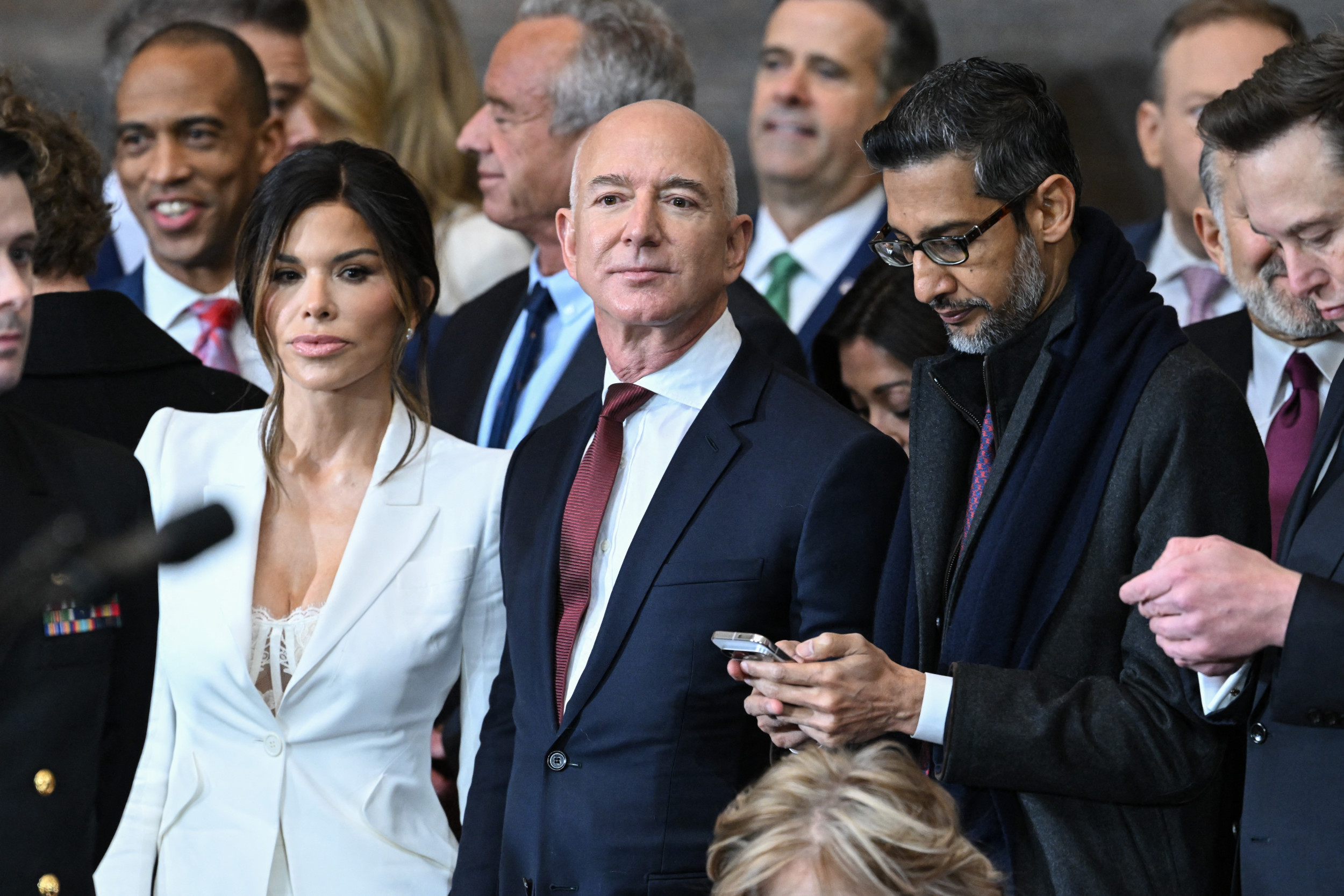Trump deals in attention-grabbing, absolutist policy promises. He is going to "drill, baby, drill." He is going to shut down the border. He is going to end the war between Russia and Ukraine. He is going to revive American industry and usher in a golden age.
While a diverse majority of Americans have shown greater confidence in a second Trump term, a gullible belief that Trump will address all of America's woes is not what voters clung to as they waited in line to vote. Trump won the election because of what his absolutist policy goals plainly touch on: a central desire to unapologetically re-establish American prosperity and strength—something a fatigued and frustrated society will gladly rally around while they keep their ear to the grindstone of ordinary life.
From the kitchen table to the global negotiating table, Americans want to be reassured that the side they are sitting on is secure.

To do that, Trump will need to do something that many American leaders have failed to accomplish in modern times: From day one through December 2028, his administration will need to communicate and model a new, clear national identity in order to maintain the confidence of the diverse coalition of American voters who granted him a second term. It must be an identity that avoids partitioning Americans into various identity groups and pitting them against each other.
Regardless of whichever policy goal he tackles first, Trump will need to keep Americans united and focused while enduring the labor pains of some very serious and difficult policy changes—especially if he hopes to see his changes last longer than the next four years.
Take illegal immigration. What is the "American" way of handling this? Certainly, the immigration system has been taken advantage of or avoided all together at an unforeseen scale the past four years. But how should Americans view mass deportations? Many won't lose sleep over the pursuit and deportation of violent offenders, drug dealers or terrorists. But eventually, questions surrounding what to do with desperate and—barring the crime of immigrating illegally—innocent families and individuals are going to come up. Are Americans really willing to watch our government round these folks up and chuck them out?
As a conservative, I tend to have the stereotypical black and white view of the law. But as a Christian husband and father, I would be lying if I told you my moral compass doesn't spin at the thought of indiscriminately chucking any and all illegal immigrants out the door.
Is this hesitation an American reflex? Am I being naïve or wise? Does the Trump administration find my hesitation valid and a reason for creating exceptions? I don't assign exceptionality to a leader because he has no problem telling me what my beliefs should be, but because they have proven they have carefully navigated their own beliefs.
The Trump administration must aim to help Americans understand who we are and how this immense undertaking should be handled. Otherwise, it will either fall apart and nothing meaningful will be done due to political and social infighting, or it will be barbarous and a stain on our national character because we fired from the hip.
The promise of an American "golden age" and rebuilding American industry will require a solid grounding in national identity. American society lacks devotion to the industrial complex. In order for America to experience an industrial boom, Americans will need to work in the kinds of jobs and endure the growing pains required of this goal with patience. America needs massive amounts of skilled tradespeople, general construction laborers and industrial laborers if we hope to achieve this end. This was something I wrote about in an essay for American Compass last year. As of that writing, the Bureau of Labor Statistics said that America would need to hire 80,200 electricians, 43,300 plumbers, 42,500 HVAC technicians, 76,500 carpenters, 53,000 industrial mechanics, and 154,900 construction laborers and helpers just to keep up with currently projected levels of production. These are careers that have had low recruitment numbers for decades. While there are encouraging signs that the stigma around skilled trades and blue collar work are lifting to a degree, we are a long way from skyrocketing passed maintenance recruiting levels into massive growth territory.
This, again, is where our national identity comes into play. Trump's industrial goals aren't just respectable goals; they are a huge ask on the American people. Families will need to encourage their sons and daughters to chase these necessary industrial careers. While growth in STEM fields will certainly need to increase robustly as well, it is all for naught if no one shows up to build the industrial complex and keep it running.
If Trump can't excite Americans into pursuing the next age of industrial growth, where blue collar and white collar professions are rightfully viewed as equally vital and worthy of investment, then we will fail. We won't have our golden age, and we won't build an industrial complex worthy of being the envy of the modern world.
Identity and progress are married. If Trump can't help Americans find their way to a happy marriage of shared identity and goals for progress, then we will remain divorced from one another. Progress will begin to feel as foreign as this small majority of unity currently feels.
I was a pessimistic Trump voter in 2016. I ended up becoming an optimistic one in 2024—not because Trump seemed all that different, but because I found those around me who were voting for Trump to be far less homogenous. It was an encouraging thing.
It's up to Trump and his new administration to continue to convince this diverse coalition of people that we belong together. Otherwise it won't matter what policy goal he pursues first—it will all be undone in four years because his coalition, and the mandate they gave him, will fall apart.
Americans need to be reminded of who we are in order to achieve what we are capable of. We'll see if Trump can do it. Otherwise, the "Trumpian" Right will face the same defeat as the "elitist" Left just did.
Skyler Adleta is an electrician in Cincinnati, Ohio.
The views expressed in this article are the writer's own.




















 English (US) ·
English (US) ·